/https://storage.googleapis.com/s3-autonomous-upgrade-3/static/upload/images/new_post/how-to-keep-your-data-safe-when-working-remotely-554.jpg)
How to Keep Your Data Safe when Working Remotely
The sudden switch to remote work due to the coronavirus has brought to the fore the importance of digital security. With things like Zoombombing, it is becoming clear every remote worker has to be proactive about their digital security.
So how do you go about securing your work when working remotely?
1. Keep work data on work computers
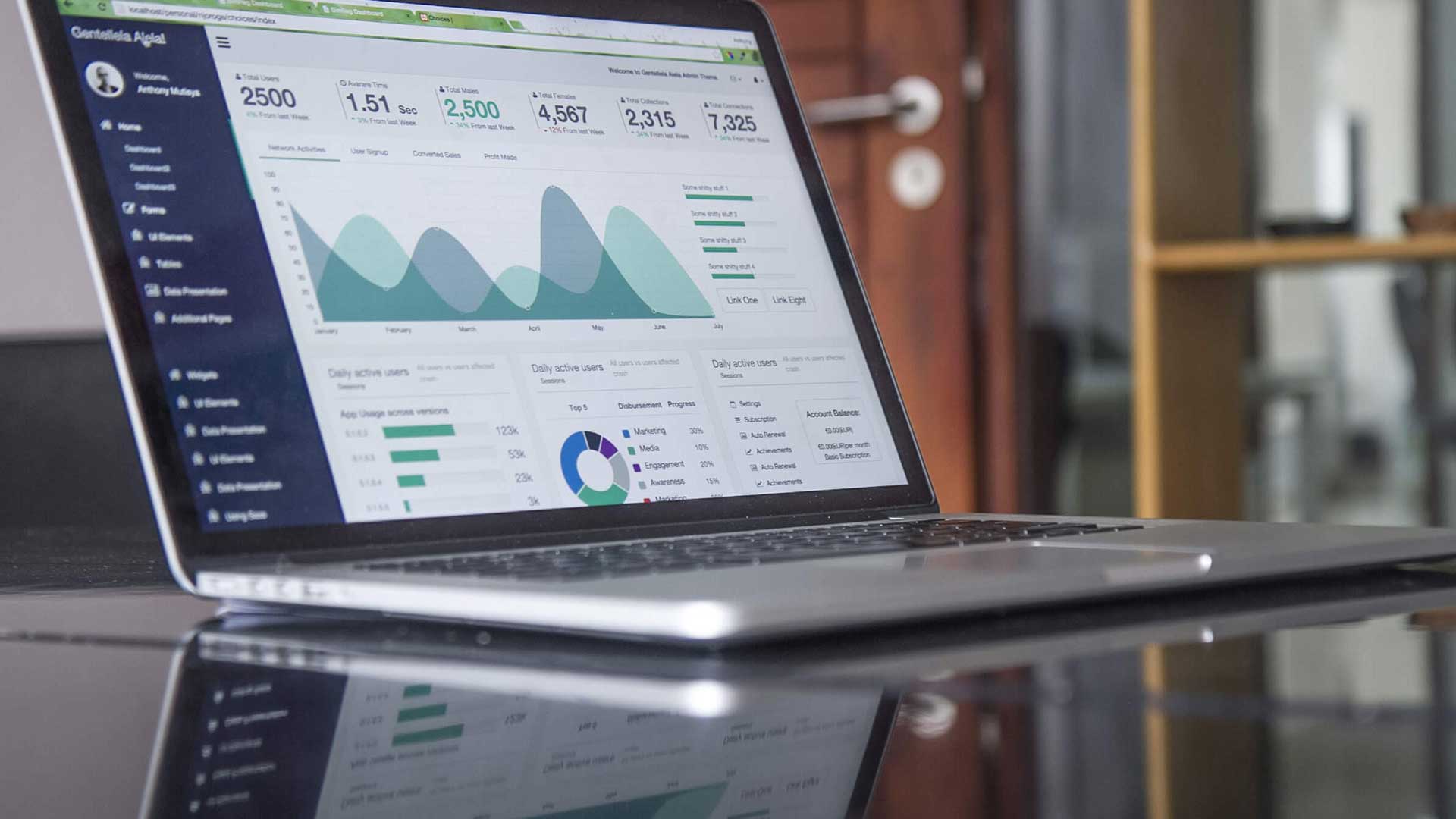 Imagine you have finished your days' work; you jump in bed and decide to watch a movie on your personal computer.
Imagine you have finished your days' work; you jump in bed and decide to watch a movie on your personal computer.
After you are done watching the movie, you decide to check on your work email to see if there are any emails before you call it a day.
It may seem so innocent, but do not do it. When you use a personal computer on a work network, even remotely, you put the company network system at risk as well as yourself.
Most probably your personal computer does not have all the necessary antivirus scans, software to block malicious sites, and installed regular updates to protect your work data.
However, if you work for a company with an adept IT department, all these protective measures will put on your work computer.
So, stick to your work computer whenever you are doing anything work-related. In case of any loss or damage of data, you put yourself in the risk of facing legal charges.
2. Avoid using public WI-FI
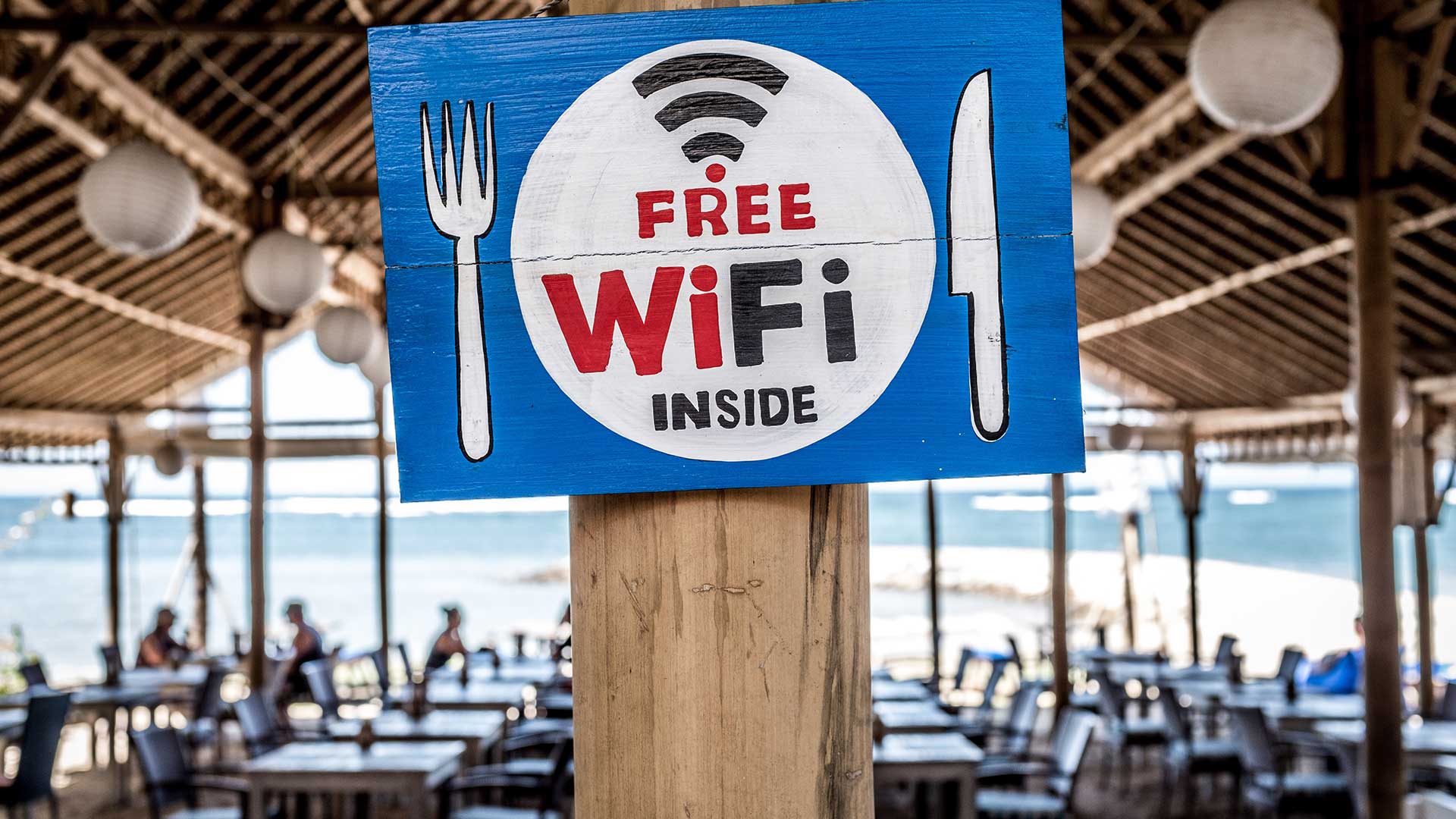 If you are digitally conscious, you know by now public wifi is a no go. However, even with this understanding, many people still use public wifi to do their work.
If you are digitally conscious, you know by now public wifi is a no go. However, even with this understanding, many people still use public wifi to do their work.
The problem with public wifi is that other people have access to the network and, without a firewall between you and them; malicious people can hack at your computer.
Also, anyone on the public network who is malicious and wants to see data hits between you and your workplace can easily do that.
An alternative would be to use a personal hotspot using your phone or a dedicated device. The good thing is that most of the major carriers have this offer, which you pay a nominal fee and set up your private wifi network on your phone.
The cost is minimal, but it will protect you against the potential downside of losing your work data.
Therefore, avoid using public wifi to do your work.
3. Use corporate services for e-mail, messaging, and all other work
It is more than likely that the company you work for has corporate software that they use for communication, collaboration, and submitting your work. For example, a corporate email, Microsoft Office 365, Slack, HipChat, and other software.
As you work remotely, stick to these corporate resources for all correspondence, collaboration, and submitting your work.
Do not be tempted to use your personal Google accounts to work, because they are highly susceptible to a security breach.
4. Block the Sight Lines
As businesses are reopening, albeit, with strict restrictions, you may decide to go and work in your local coffee shop. If you choose to do so, pay attention to your sightlines.
So, if someone is behind you, can they see everything you are doing on your computer?
With the right observational skills, which a cybercriminal has, they can note what you are doing and steal your confidential information.
So, sit at an angle in which no one can see what you are doing on your computer. Also, keep your device with you when you go to the restroom. The moment you leave your laptop, it can be quickly compromised by a hacker who can insert a USB rubber ducky and in 15 seconds exfiltrate documents, or capture credentials.
5. Lock your doors
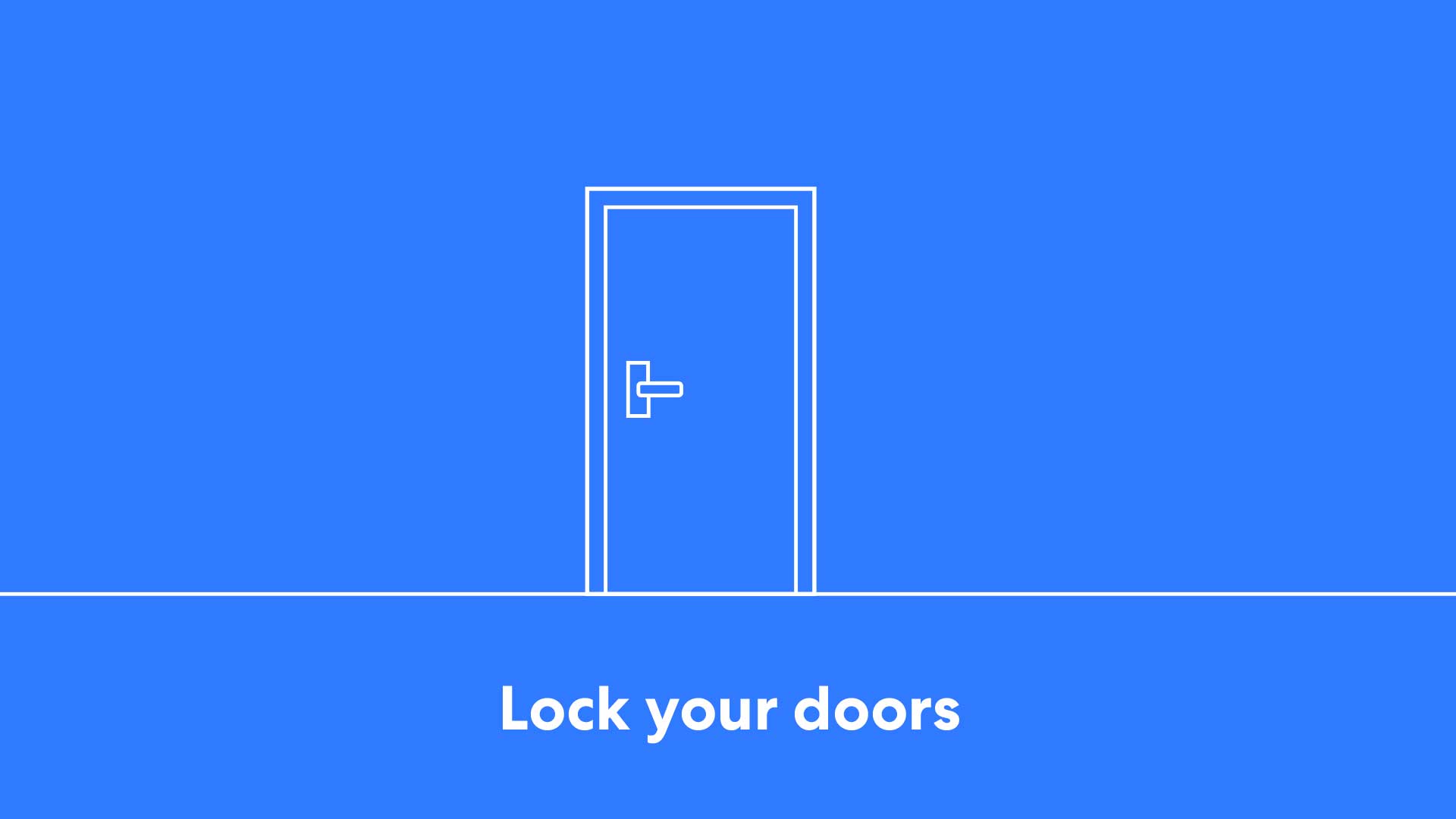 When working at home, do you lock your doors? You may not think it is a big deal since you are home, but leaving your door unlocked exposes you to burglary. It is estimated 30 percent of all burglaries occur with the intruder entering through an unlocked door.
When working at home, do you lock your doors? You may not think it is a big deal since you are home, but leaving your door unlocked exposes you to burglary. It is estimated 30 percent of all burglaries occur with the intruder entering through an unlocked door.
By leaving your door open, you are risking your computer being stolen. In data-sensitive industries, losing data can cause you to be fined huge sums of money.
So, lock your doors when working, and also encrypt your computer. In case anything happens, it will not be a disaster but a simple annoyance.
Also, if you share your space with other people, for example, roommates, lock the door of your room when working.
This will prevent them from walking on you when you are working on sensitive material. If you have a would-be data thief for a roommate, they can steal your work and land you in trouble.
6. Never leave your laptop and devices in the car
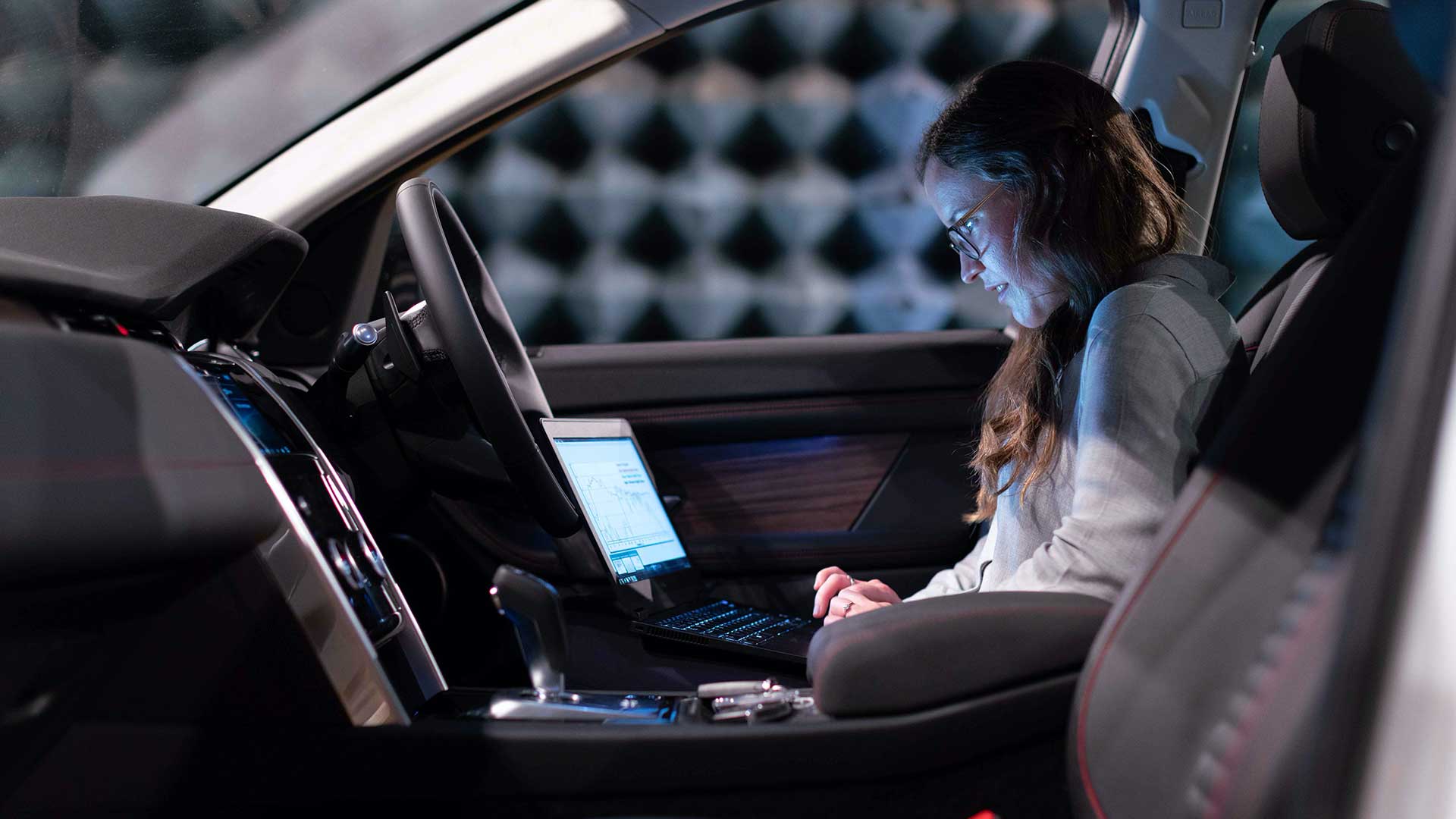
If you are on the road and have your work devices with you, do not leave them in the car. This is because there are criminals in parking lots looking out for their next victim. Have your devices on you at all times.
Also, avoid leaving your work devices in your trunk, as it is not any safer.
7. Do not use random USB flash drives
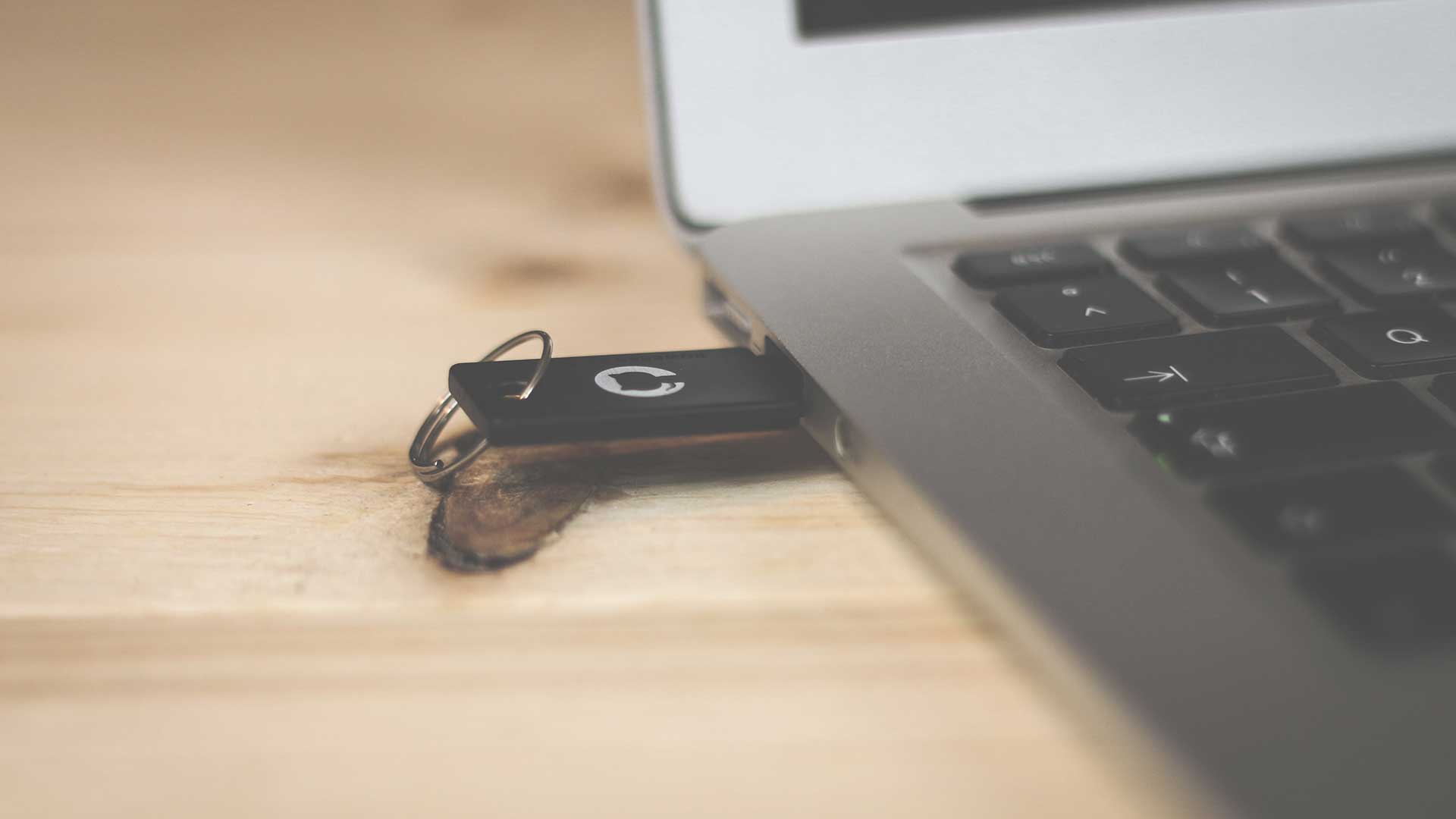
Social engineering has become one of the easiest ways to commit cyber attacks. It involves psychological manipulations to make people divulge confidential information.
One classic social engineering ploy; a hacker would drop a large capacity USB flash drive and hope someone would pick it up.
Given it is a large capacity flash drive, it is not surprising someone would pick it up and go on to use it.
Without noticing, you have made it easy for a hacker to launch an attack. So, never pick up a random USB flash drive and think how lucky you are, it is the hackers' luck.
Finally, do not use a USB flash drive you cannot vouch for its source, also do not allow anyone to plug in their USB devices into your computer to charge their devices.
Conclusion
COVID-19 has created a new normal among workers. And as the crisis continues to evolve, there is going to need to be more conscious of our security. With the above tips, you will keep your data safe and continue being productive during this time of COVID-19.
Read more...
Expectation vs Reality: My Biggest Work From Home Challenges
How Remote Workers can Achieve Work-Life Balance
Working From Home Inspirations from Successful Entrepreneurs
Transform your workspace - how to choose the best home office chair
Stay connected with us!
Subscribe to our weekly updates to stay in the loop about our latest innovations and community news!
Spread the word



/https://storage.googleapis.com/s3-autonomous-upgrade-3/production/ecm/230914/bulk-order-sep-2023-720x1200-CTA-min.jpg)

/https://storage.googleapis.com/s3-autonomous-upgrade-3/static/upload/images/new_post_author/hilda-munjuri-21.jpg)